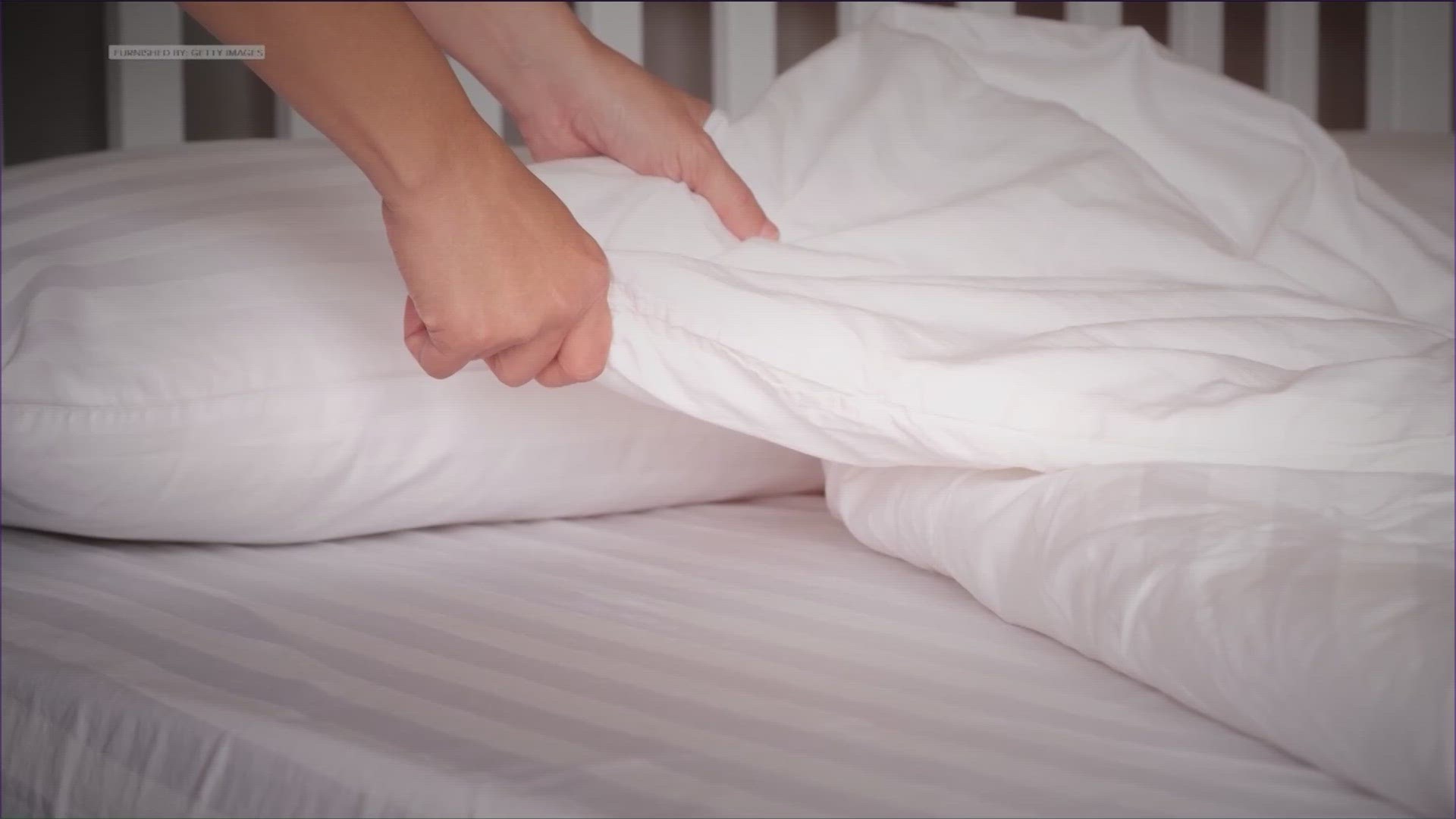AUSTIN, Texas — According to the most recent study by Climate Central, allergy season is going to worse than usual this year. Closing windows and changing clothes may not be enough to minimize its effect.
A survey conducted by eachnight revealed only one-third of people shower at night, meaning that two-thirds of people are tracking pollen, dust and other allergy-triggering particles into their beds to sit and stew in all night long, not to mention those who don’t wash their hair every shower.
"When those sheets get in that great big tangle, sometimes they'll turn into a tornado, or what I call it, and they get all one great big clump that doesn't come out very clean. The allergens don't rinse out," said Cyndi Bray, inventor of Wad-Free, a tool that helps prevents bed sheets, blankets and duvet covers from twisting and turning in the washer.
"A lot of the advice when you have allergies is to wash your sheets a lot because when you're out and about, you get pollen dander on your clothes, or on your skin, in your hair. Then when you go to bed, it just transfers to the sheets and you're sleeping in it," Bray continued. "So while you might wash your sheets ordinarily once a week or once every other week, it's recommended to wash your sheets several times a week."
Experts say normally the advice is to wash everything in hot water when you have allergies. However, hot water can be damaging to sheets and clothes.
"I've read some research that says that you can wash in cold water if you do two cold water rinses afterward, and that's just as effective at removing the dander and the pollen as if you wash in hot water, so there is an alternative. If you don't want to use hot water, you can use cold water two rinse cycles," Bray said.

